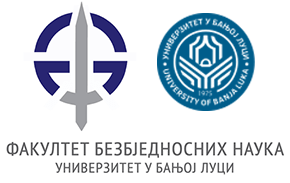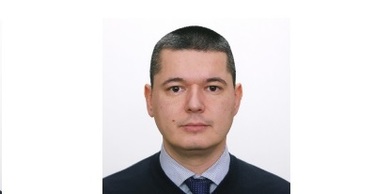
Heidelberg University Published a Story About Prof. Dr Pedja Kovacevic
An alumni story about Prof. Dr Pedja Kovacevic was published on the website of Heidelberg University.
Namely, Dr Kovacevic, Associate Professor at the Faculty of Medicine, University of Banja Luka, and Head of the Medical Intensive Care Unit at the University Clinical Center of the Republic of Srpska, was a visiting physician (scientist) in Heidelberg between 2005 and 2007 and worked at Heidelberg University Hospital and the Thorax Clinic in the same city. During this time, he closely cooperated with his mentor Prof. Dr F Joachim Meyer at Heidelberg University Hospital, who now heads several organizational units at Munich City Hospital.
As outlined in the text published on the website of Heidelberg University, in order to contribute to and aid the country’s post-war recovery, the European Commission and other European institutions such as the Coimbra Group and the Union Internationale Contre Le Cancer prepared different projects to help the mobility of young researchers and doctors from Bosnia and Herzegovina.
,,The main objective was to assist the health and education system and to facilitate the exchange of knowledge and experience between clinicians and researchers in the region. The first physician to receive such a grant for the purpose of education in critical care was Dr Pedja Kovacevic at the University Clinical Center of the Republic of Srpska’’, it says, among other things, in the text.
During his training at the University Hospital in Heidelberg between 2005 and 2007, Dr Kovacevic was mentored by Prof. Dr F. Joachim Meyer, a board-qualified specialist in the field of internal medicine, cardiology, respiratory medicine and critical care, who was also the Head of Medical Intensive Care Unit at Heidelberg University Hospital. It further says that Dr Kovacevic also had training in invasive bronchoscopy techniques at Heidelberg’s renowned Thorax Clinic under the supervision of Prof. Dr Heinrich Becker, then Head of the Endoscopy Unit.
In 2006, under the guidance and referral of Prof. Meyer, Dr Kovacevic applied and got the prestigious Travel Award for Young Fellows in Developing Countries of the American Thoracic Society (ATS). Hence, he attended the American Thoracic Society Conference, a critical care medicine section in San Diego, where he met the BH-born Prof. Ognjen Tadic, critical care specialist at the Mayo Clinic in Rochester, USA.
 |
 |
 |
| Prof. Dr Peđa Kovačević,, UCC RS and Faculty of Medicine, University of Banja Luka |
Prof. Dr F. Joachim Meyer, Heidelberg University |
Prof. Ognjen Gajić, Mayo Clinic, Rochester, USA |
What is important to emphisize is that it was Professor Meyer and Professor Gajic who organized the first donation of non-invasive ventilators to the Department of Pulmology at the University Clinical Center of the Republic of Srpska.
After his return from Heidelberg in 2007, as it says in the text, Dr Kovacevic started developing medical critical care at the UCC RS. In the same year, he visited the Critical Care Department at the Mayo Clinic, where he had intensified training in invasive and non-invasive mechanical ventilation under the supervision of Prof. Dr Ognjen Gajic. One year later, the then management of the University Clinical Center of the Republic of Srpska and the Ministry of Health of the Republic of Srpska approved the establishment of the first modern Medical Intensive Care Unit in Bosnia and Herzegovina, where Dr Kovacevic applied the knowledge gained.
,,During the following ten years, Prof. Meyer and Prof. Gajic provided continuous support in the development of medical intensive care, which proved to be a difficult process with many obstacles. Prof. Meyer visited the University Clinical Center of the Republic of Srpska as a visiting physician and mentor on several occasions. He gave a series of lectures on intensive care medicine, carried out the first invasive monitoring by pulmonary catheter, the first percutaneous tracheostomy and provided education at the bedside. These activities were supported by the Erasmus Mundus Plus project of the European Commission,” this prestigious university states.
In order to enhance the development of critical care in Bosnia and Herzegovina, Dr Kovacevic, Prof. Dr Guillaume Thiéry at the University Hospital of Saint-Etienne, France, Prof. Ognjen Tadic, Prof. Dr Emir Festic at the Mayo Clinic, USA, and Prof. Joachim Meyer proposed the first draft of the curriculum for critical care subspecialist program in 2010. In spring 2014, this proposal was accepted, and Dr Kovacevic became the first pulmonary and critical care subspecialist in the RS and BH.
Prof. Meyer became the first international mentor for the critical care subspecialist program at the Faculty of Medicine, University of Banja Luka. In September 2016, Dr Kovacevic successfully passed the board exam before an international board and became the first pulmonary specialist and critical care subspecialist in Bosnia and Herzegovina. Two years later, he became the first coordinator of the critical care subspecialist program at the Faculty of Medicine, University of Banja Luka.
Heidelberg University states that, together with Prof. Meyer and Prof. Gajic, Dr Kovacevic started the first research projects in the field of critical care at the UCC RS. In June 2019, Dr Kovacevic published his paper titled „Impact of Weekly Case-based Tele-education on Quality of Care in a Limited Resource Medical Intensive Care Unit” in the prestigious journal Critical Care. With this, the development of all crucial links in critical care medicine was improved: treatment of critically ill patients, education and research.
At the end of the story about Professor Kovacevic, Heidelberg University points to the fact that the Medical Intensive Care Unit at the UCCRS is ISO 9001:2015 certified and serves as a tertiary referral center for medical intensive care in the Republic of Srpska, providing health services to a population of 1,200,000 inhabitants as well as that the contribution of Heidelberg University to this project is enormous.
To see the original text, go herе.




